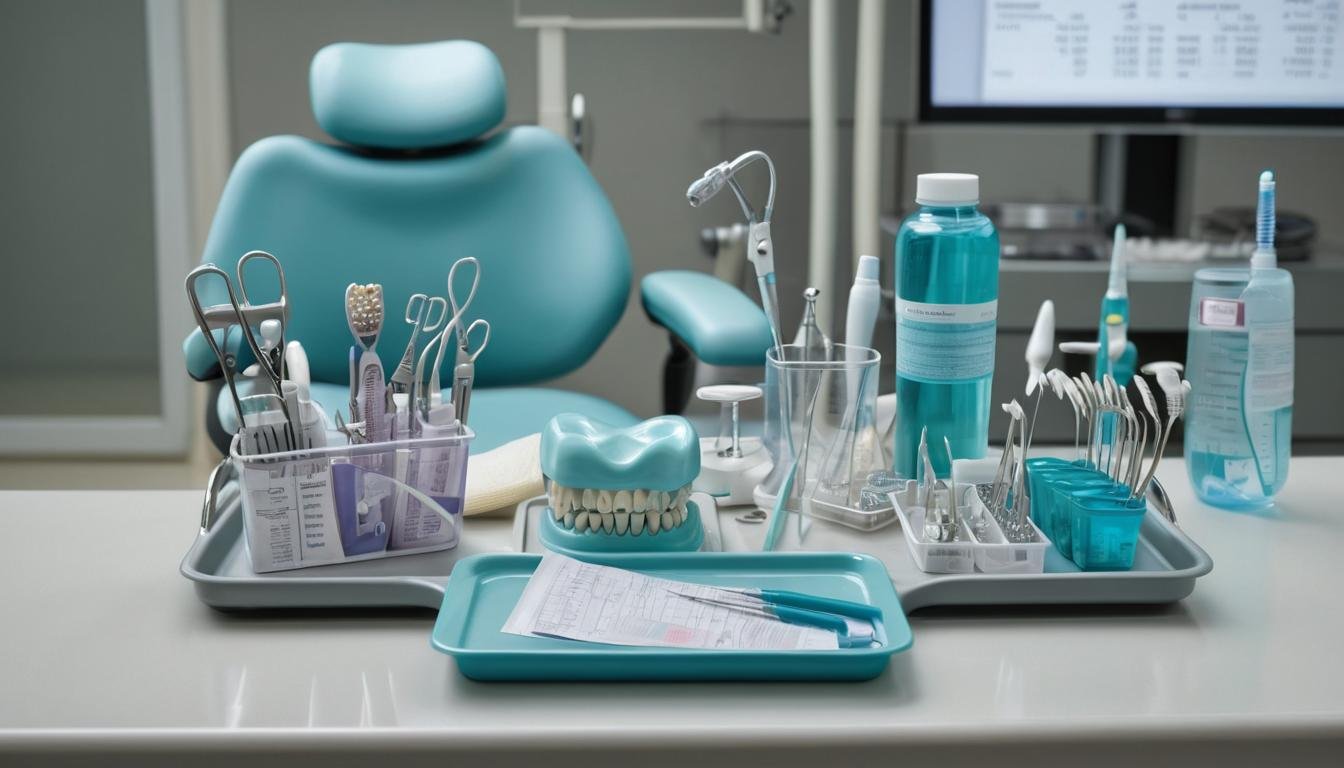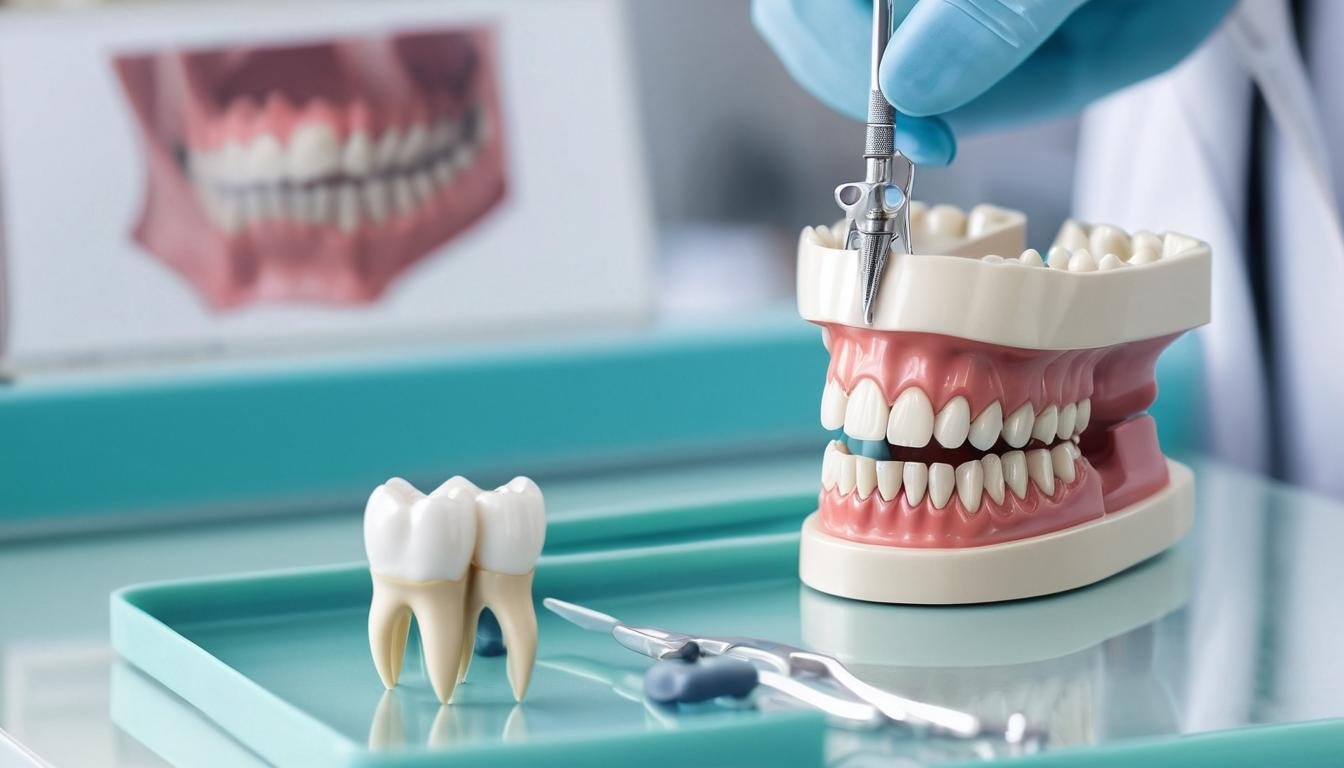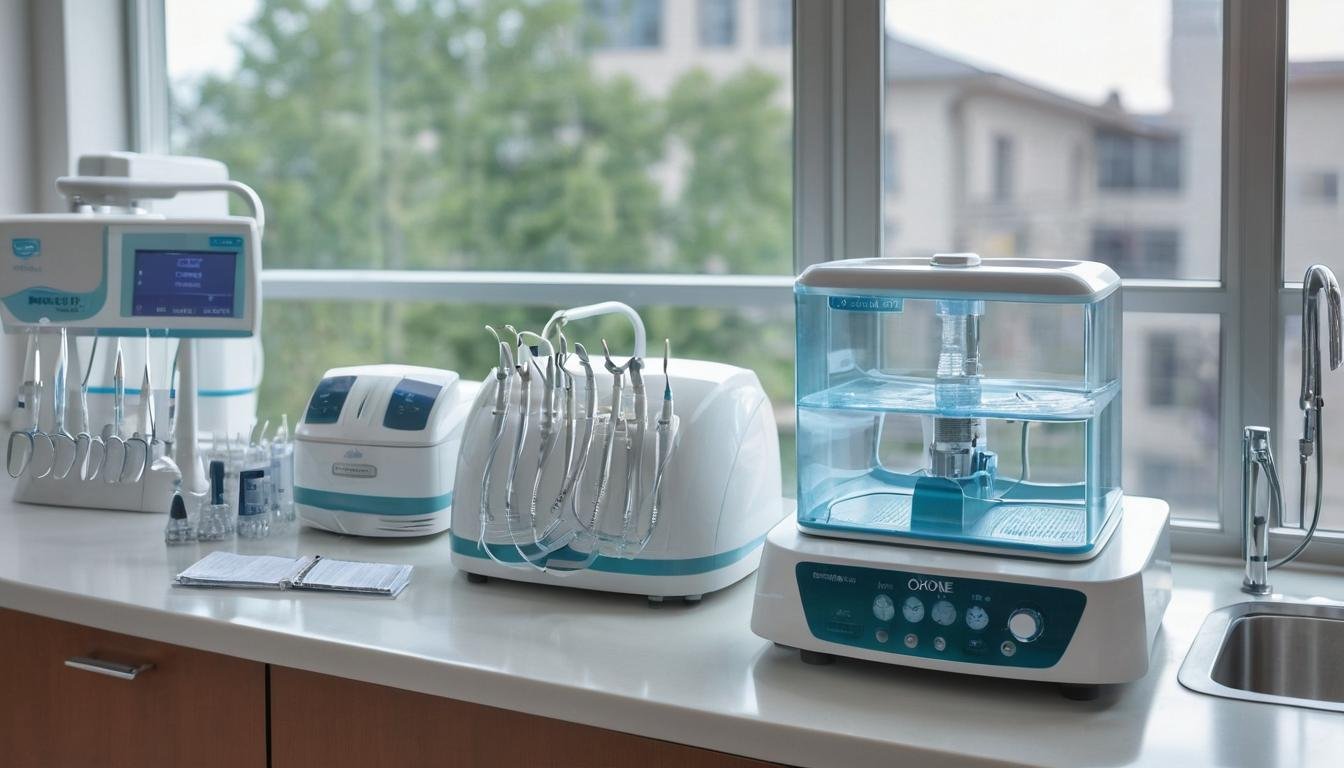
Root Canals: Infections, Treatment, and Risks of Death
When your dentist recommends a root canal, it's normal to feel a wave of anxiety. Understanding the procedure and its potential risks is crucial for making an informed decision about your dental health. A root canal aims to save a severely infected tooth by removing the infected pulp. While this procedure is generally safe, you might have heard concerning stories about complications, including infections and even rare cases of death.

When Wisdom Teeth Stop Growing: Essential Facts on Dental Growth
Feeling discomfort in your mouth? Wondering if it's your wisdom teeth? You're not alone—many individuals around your age start experiencing similar symptoms as their wisdom teeth make an appearance. This is more common than one might think, typically beginning between ages 17 and 25, yet some may find these third molars emerging even later.

Why Teeth Hurt After a Cleaning: Causes and Solutions
It's not uncommon to leave the dentist's office with an admirable smile yet find yourself wincing at your first sip of coffee. This familiar moment leaves many wondering—why do teeth hurt after a teeth cleaning? The discomfort can take away from life's simple joys like relishing a warm beverage or savoring a cool treat.

How Long Do Temporary Crowns Last? Tips for Dental Care and Maintenance
The uncertainty that comes with dental work can be daunting, especially when it involves something as crucial as a temporary crown. It's natural to wonder just how long a "temporary" fix needs to hold up. Generally, temporary crowns are designed to last between two weeks to a few months at most, bridging the gap while your permanent crown is being prepared. However, knowing this timeframe is only part of the puzzle.

Painless Root Canals: Understanding the Procedure and Its Benefits
For many, the thought of a root canal brings a wave of dread, often fueled by tales of unbearable pain. However, the reality is far different today; modern dentistry has made leaps in making this procedure virtually painless. Extensive research, conversations with dental experts, and patient testimonials reveal why understanding the process can alleviate much of this fear.

What Not to Eat After Teeth Cleaning: Foods That Can Harm Your Oral Hygiene
After a thorough teeth cleaning, it's natural to feel motivated about maintaining that fresh, smooth feeling in your mouth. What you eat immediately following your appointment plays a crucial role in preserving this cleanliness. Surprisingly, certain foods and drinks commonly found in our daily lives can compromise our oral health if consumed too soon after a cleaning.

What Are Wisdom Teeth Used For? A Deep Dive Into Their Purpose
Experiencing discomfort or swelling in the back of your mouth can be quite unsettling, especially when you're unsure if it's linked to your wisdom teeth. You might wonder why we have these seemingly troublesome molars at all. The answer lies buried in our history and evolution. Imagine living millions of years ago, relying on wisdom teeth to munch through tough, raw plants and meat. Back then, early humans found these third molars essential.

When to Use Heat After Wisdom Teeth Removal: Essential Recovery Tips
Recovering from wisdom teeth removal disrupts daily life, making simple tasks feel almost impossible due to pain and swelling. For many, these first two days are the hardest, with swelling tightly pushing against sore, tender gums. During this time, ice packs become your best friend, helping to reduce inflammation and provide some relief.

What Are the Advantages of Using Ozone for Dentists?
Are you looking for a way to improve your dental practice while ensuring patient comfort and safety? Dentists like yourself are constantly searching for innovative solutions, which is why there's growing interest in ozone therapy. Known for its powerful disinfectant properties, ozone offers unique advantages that set it apart from traditional methods—chief among them being virtually painless treatments.
Many practitioners have observed how this seemingly simple addition has transformed patient experiences.

Benefits of Ozone Dental Cleaning: Enhancing Your Oral Health
Ozone dental cleaning offers several key benefits, including the painless elimination of tooth decay, stimulation of enamel remineralization, reduced tooth sensitivity, and rapid results without the need for anesthesia, making it especially appealing for individuals with dental anxiety. Additionally, this innovative treatment method effectively sanitizes affected areas in a non-invasive manner and can address minor dental issues with minimal discomfort.

Why Dentists Use Ozone: Exploring Holistic Oral Care Benefits
Dentists use ozone therapy because it acts as a powerful antimicrobial agent, effectively eliminating harmful bacteria, viruses, and fungi in the mouth while promoting a healthier oral environment. This minimally invasive treatment supports natural healing processes, reduces the need for extensive dental work, and helps maintain beneficial bacteria, aligning with holistic practices that emphasize overall health and prevention.

Warning Signs You Need a Root Canal: Recognize the Symptoms
Common signs that you may need a root canal include persistent tooth pain, sensitivity to hot or cold that lingers, discoloration of the tooth, and swelling in the gums. If you're experiencing any of these symptoms, it is crucial to consult with a dentist for an evaluation as they may indicate an infection in the tooth pulp requiring root canal treatment.

Painless Root Canals: A Stress-Free Experience at Your Dentist
For many, just hearing the words "root canal" can conjure images of excruciating pain and discomfort. Yet, modern dental practices have made significant strides so these procedures no longer match those fearful expectations. Today's root canal treatments can be surprisingly painless, thanks to innovative techniques and cutting-edge technology. Now, precision tools like lasers, advanced numbing agents, and even electronic anesthesia contribute to a stress-free experience in the dentist's chair.

How Long Do Crowns Last on Front Teeth? Understanding Lifespan and Care
For anyone who values their smile, knowing how long your dental crowns will last is crucial. Understandably, there’s anxiety around whether these crowns will stand the test of time or give out unexpectedly just when you need them most. Surprisingly though, the answer isn’t straightforward—several factors come into play. Oral hygiene stands at the forefront. Much like ensuring your kitchen stays clean while trying out that complex dish, maintaining a regular brush and floss routine significantly affects how long those crowns will serve you well. But it doesn't stop there; the materials used in your crowns also matter greatly.

What to Expect After a Root Canal: Pain Relief and Aftercare Guide
Once your root canal procedure is finished, it's entirely normal to worry about what's next. The most immediate sensation you'll experience stems from the lasting effects of the anesthetic used during the treatment. Studies show that this numbing effect can linger for 2-4 hours, providing temporary relief but also leaving your lips and gums feeling peculiar. During this period, avoiding hot foods and chewing is crucial to prevent accidental injuries.

Do Root Canals Hurt? Understanding the Pain and Recovery Process
Root canals often carry a fearsome reputation, evoking images of agonizing pain and prolonged recovery. However, these old notions no longer hold true in today's world of advanced dental care. Modern dentistry has made significant strides in reducing discomfort associated with root canals. In fact, studies by the American Association of Endodontists reveal that undergoing a root canal is now comparable in discomfort to having a cavity filled.

What's a Root Canal? Understanding the Dental Procedure and Treatment
Understanding what a root canal involves could provide peace of mind. This procedure targets deep-seated infections causing your discomfort. By addressing this issue at its source, rather than merely masking symptoms, a root canal helps restore long-term dental health. You'll find that while often feared, the reality of undergoing this treatment might not be as daunting as it first seems.

Why Do Narcissists Struggle with Bad Oral Hygiene: Signs and Psychology
It's quite ironic that those most obsessed with their appearance often overlook one key aspect: their dental health and keeping their teeth clean. This paradox is especially true for narcissists who, despite a façade of perfection, frequently struggle with bad oral hygiene. You might wonder why someone so focused on looking good would neglect something so fundamental. Research shows that certain personality traits in narcissists are the culprits. Traits like grandiosity, where they believe they are naturally immune to common health issues, contribute significantly to this neglect.

How To Regrow Bone Loss From Periodontal Disease Naturally
The path to effective natural treatment for periodontal disease begins by diving into the underlying causes and consequences of bone loss due to periodontal disease. While bone loss around teeth cannot be naturally reversed, you can support gum health and potentially prevent further deterioration by maintaining excellent oral hygiene practices, including brushing with fluoride toothpaste and flossing regularly.

How Long Does It Take for Invisalign to Work? The Effective Process Explained
Curious about how long Invisalign takes to work? It's a common question for those seeking a perfect smile while juggling a busy lifestyle. Understanding the timeline for effective results can help you make an informed decision about starting your Invisalign journey. Several factors determine how quickly you'll see changes with Invisalign.
